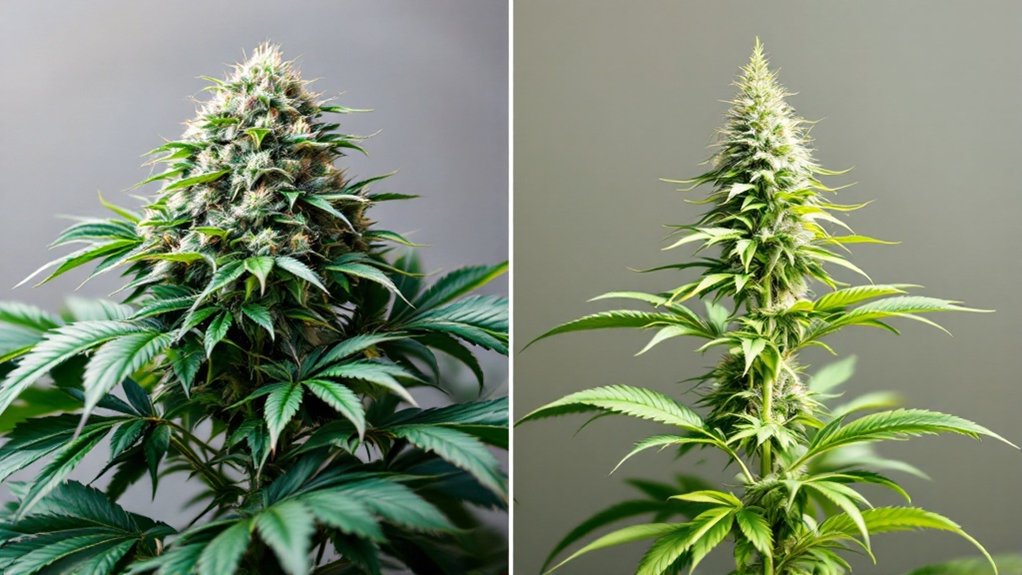Section 280E crushes cannabis businesses with brutal tax burdens. Born in 1982 to punish drug dealers, it now hammers legal dispensaries with 40-80% effective tax rates compared to normal businesses’ 21%. Cannabis companies can only deduct cost of goods sold. No rent, salaries, or marketing deductions allowed. Small operators often pay more in taxes than they make in profit. Talk about a buzz kill. The industry’s growth remains stunted until reform occurs.

Nearly every legitimate business in America can deduct ordinary expenses on their taxes except cannabis companies. Thanks to an obscure tax code provision called Section 280E, state-licensed marijuana businesses face a brutal financial reality that other industries simply don’t have to deal with.
Section 280E emerged in 1982 after a cocaine dealer tried claiming his scales and travel expenses as business deductions. Congress wasn’t having it. They slammed the door on tax breaks for drug traffickers. Fast forward forty years, and this Reagan-era policy now hammers legal cannabis entrepreneurs operating in compliance with state laws.
The impact? Devastating. While normal businesses pay the standard 21% corporate tax rate, cannabis companies get slapped with effective rates between 40% and 80%. Do the math. It’s punishing.
Here’s the catch: cannabis businesses can still deduct their cost of goods sold (COGS). Everything else? Forget it. Rent, employee salaries, marketing, utilities, insurance are all taxable. For a dispensary with thin margins, this can be the difference between profit and bankruptcy.
Some dispensary owners literally pay more in federal taxes than they make in profit. Let that sink in.
The IRS doesn’t care that 38 states have legalized some form of cannabis. Federal law classifies marijuana as Schedule I, right alongside heroin. Section 280E specifically targets businesses trafficking in Schedule I substances as defined under the Controlled Substances Act. So as far as Uncle Sam is concerned, a dispensary in Denver is no different from a street dealer, just with better lighting and security cameras.
Small cannabis operators suffer most. Without the ability to deduct normal business expenses, many struggle to survive their first year. Some try creative accounting by separating their businesses into multiple entities. The IRS usually catches on.
Until Congress reforms 280E or reschedules cannabis, this tax burden remains the industry’s biggest financial hurdle. The industry has generated over seven billion dollars since 2012, yet continues to be hamstrung by outdated tax policies. Legal weed may be booming, but the tax man guarantees nobody’s getting rich quick.
Frequently Asked Questions
How Do Cannabis Businesses Navigate Tax Audits Under Section 280E?
Cannabis businesses face intense IRS scrutiny under 280E.
They’re meticulously separating COGS from ordinary expenses because Uncle Sam doesn’t care if it’s legal in your state. Documentation is everything. Proper tracking, defensible methodologies, and strict compliance with state regulations might save their bacon.
Many partner with specialized tax advisers. Without proper planning, 280E can obliterate profits. The feds aren’t playing around.
Can State-Level Tax Codes Offer Relief From Section 280E Restrictions?
State-level tax codes have begun offering partial relief from Section 280E‘s harsh restrictions.
Several states like California, Oregon, and Colorado among them have “decoupled” from federal rules, allowing cannabis businesses to deduct ordinary expenses on state returns.
The feds? Still no budging. These measures cut state tax bills but federal burden remains unchanged.
Different rules across states create administrative headaches.
Small victory, but cannabis entrepreneurs will take what they can get.
What Accounting Software Best Handles Section 280E Compliance?
Cannabis businesses face unique tax headaches. No surprise, specialized software comes to the rescue.
Industry experts point to platforms like Canix, Leaf Logix, and Flourish as top performers for 280E compliance. These systems integrate with QuickBooks while offering essential features like automated expense categorization, seed-to-sale tracking, and built-in compliance monitoring.
Standard accounting programs? They simply can’t handle it. Cannabis taxation isn’t for amateurs.
How Do Investors Evaluate Cannabis Businesses Affected by Section 280E?
Investors eyeing cannabis stocks dig deeper than traditional metrics.
Thanks to 280E, they’re forced to look beyond net income. Instead, they scrutinize adjusted EBITDA, gross margins, and operational efficiency.
Cash flow gets microscopic attention. Management’s tax planning skills? Critical. The effective tax rate can hit a whopping 98%.
Pretty hard to grow when Uncle Sam takes nearly everything. Harsh reality of the green rush.
Will Federal Legalization Automatically Eliminate Section 280E Concerns?
Federal legalization would indeed eliminate Section 280E concernsif it’s full descheduling.
That’s the key. Simply rescheduling cannabis to a lower schedule would also solve the problem. No more Schedule I status, no more 280E headaches.
Previous attempts to fix this through Congress have flopped spectacularly. Cannabis businesses are desperate for relief from these crushing tax burdens.
They’ve been waiting years. The feds seem in no hurry.










